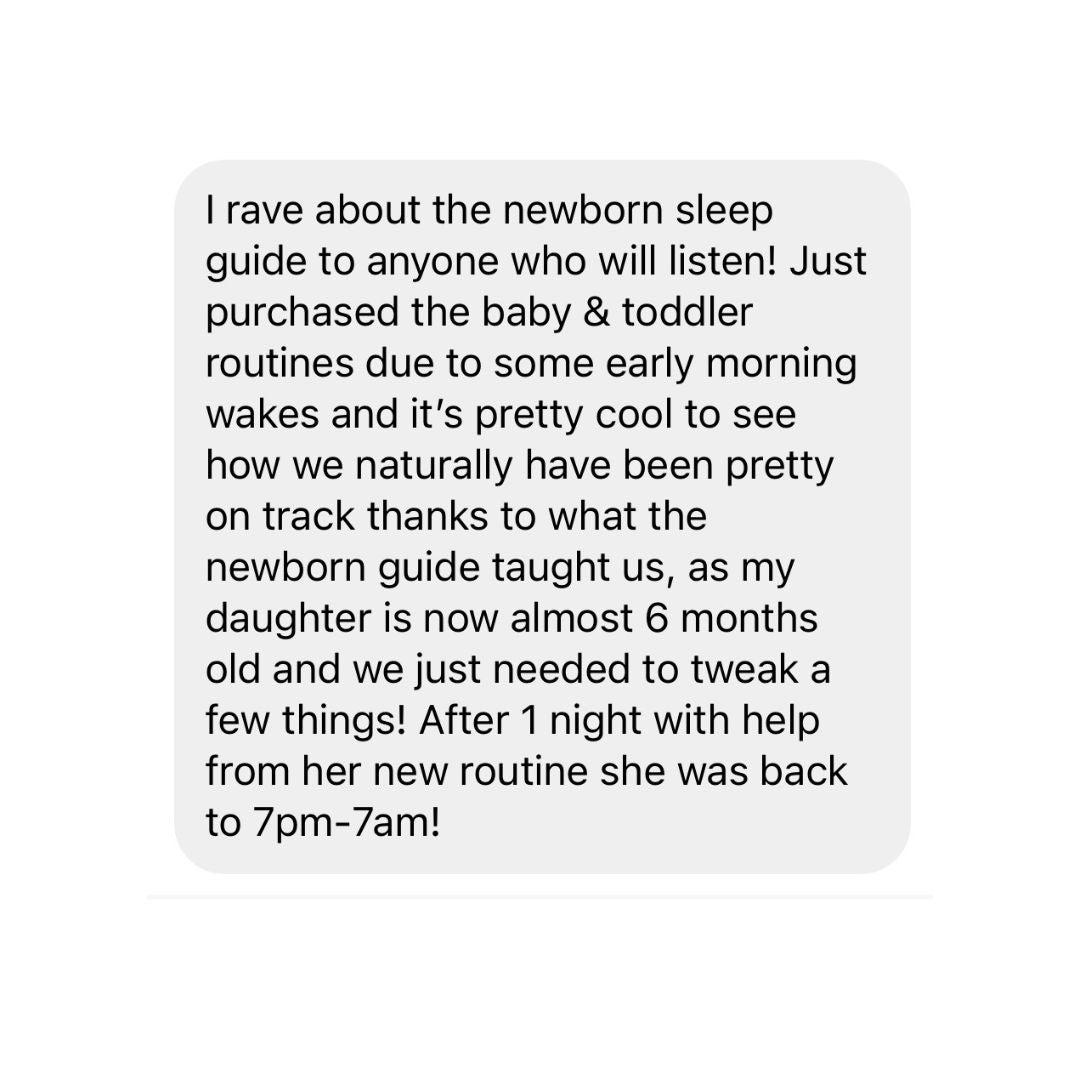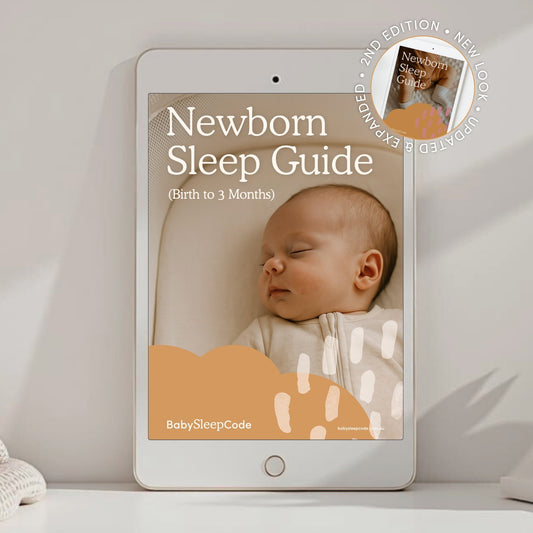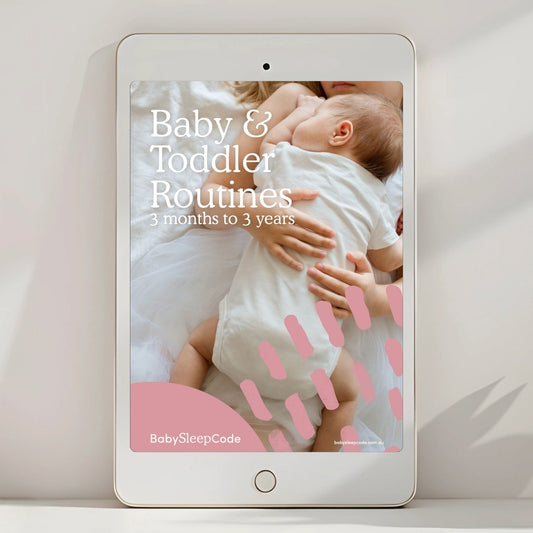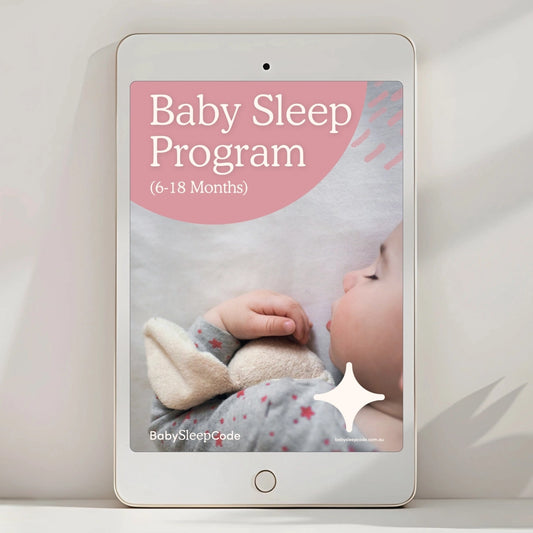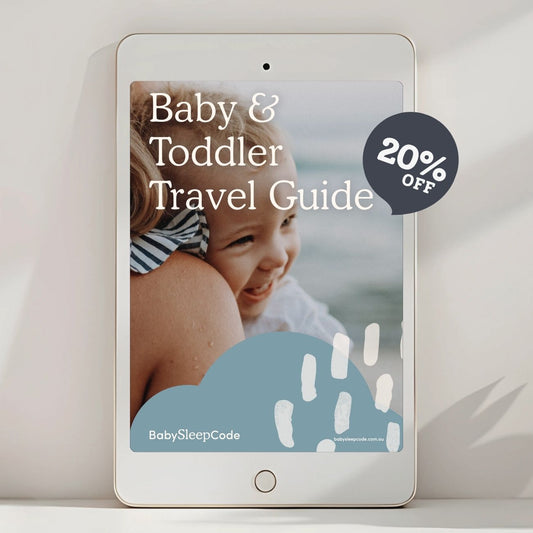When you think of the early stages of parenthood, it’s easy to picture the highlight reel: that sweet newborn smell, the gummy first smiles, tiny fingers curled around yours. But behind every adorable Instagram photo is often a more vulnerable reality — one many parents are hesitant to speak out loud.
And on World Maternal Mental Health Day, we need to talk about it - The true impact of sleep deprivation.
It’s not just “being tired.” It’s an all-consuming state that touches every corner of your life: your body, your mind, your relationships, and your sense of self.
Why sleep deprivation hits harder than you think
From the moment a baby is born, sleep becomes one of the most pressing and elusive needs in a household. In the beginning most parents expect their newborns to wake frequently, but they can be caught off guard when this doesn’t magically improve after six weeks, three months, or even a year.
In a culture that praises parents for “powering through,” sleep deprivation is too often glorified as part of the job. Yet the hidden emotional toll is significant — and science makes that clear.
The ripple effect of broken nights
Studies show that chronic sleep deprivation can impair the brain in ways similar to being intoxicated. Even one night of fragmented sleep reduces cognitive function, emotional regulation, and reaction time. For parents enduring broken nights for weeks or months, the consequences stack up fast:
- Cognitive fog that makes even simple tasks overwhelming
- Increased risk of postpartum depression and anxiety
- Impaired memory and decision-making
- Heightened stress, irritability, and emotional outbursts
- Decreased immune function
And let’s not forget the emotional weight. Sleep deprivation can make you question everything. “Am I cut out for this?” “Why can’t I handle it?” “What’s wrong with me?”
The answer is: Nothing. You're not broken — you're exhausted.
When exhaustion tips into something more
While the early days of parenting are often focused on celebration, many mothers suffer silently under the crushing weight of exhaustion. The pressure to enjoy every moment can make it feel impossible to speak up about how hard it really is. But maternal mental health matters deeply, and sleep, or lack thereof, is a critical part of that puzzle.
This isn’t just about getting rest. It’s about survival. Because for many new mothers (and dads), sleeplessness is the tipping point into depression, anxiety, or burnout.
World Maternal Mental Health Day is not only about awareness — it’s about advocacy. It’s about shifting the conversation from "You’ll miss these times" to “Let’s make sure parents are actually supported.”
Because no one can parent well, on empty.
Let’s talk about baby sleep – without the judgement
Figuring out baby sleep on your own can feel like navigating a maze. Between influencer highlight reels, click-bait parenting blogs, and conflicting advice from friends or relatives, it’s easy to end up more overwhelmed than before.
That confusion only adds to the exhaustion. Because when you’re already running on empty, the last thing you need is more guilt or pressure about what you should be doing. What parents really need is honesty, support, and practical strategies that actually help. Some things to remember:
1. You are not the only one feeling this way
Sleep deprivation is used as a torture tactic - why? Because it works! So if you’re feeling like you’re not coping with the lack of sleep, that is not a personality flaw - that’s being human. Many parents feel just as overwhelmed, even if they don’t say it out loud.
2. Permission to pause
You don’t have to be on top of everything. If the laundry piles up, if dinner is cereal again, if you cry in the car — none of that means you’re failing. Rest when and where you can, and say no to things that drain you.
3. Ask for help
It’s okay to say, “I need a break.” Whether it’s asking your partner to take a shift, calling in a grandparent, hiring a night doula, or even just venting to a friend, you do not have to carry this alone.
It’s important to reach out to a professional — whether it’s a therapist, sleep expert, or lactation consultant. These people exist to help parents like you navigate this challenging season.
5. Protect your mental health
You matter, too. If you’re finding that the exhaustion is turning into something darker — feelings of hopelessness, rage, detachment, or persistent anxiety — it’s time to check in with your mental health.
You’re not weak for needing help. You’re strong for recognising when something isn’t right.
-
Australia: PANDA (Perinatal Anxiety & Depression Australia) or Lifeline.
-
United States: Postpartum Support International.
And if you’re elsewhere, please speak with your GP or a local mental health professional for guidance.
When sleep feels impossible, we’re here for you
We know that sleep isn't just about bedtime — it's about your whole life. That’s why we use a holistic, evidence-based approach that reflects the latest in sleep science and supports your baby, your parenting style, and is easy to implement even when you’re running on empty.
From feeding and nap timings to sleep associations, environment, temperament, and more, we look at everything that impacts your baby’s sleep.
Our Baby Sleep Guides have helped thousands of families around the world move from overwhelm to confident and well-rested. They’re practical, evidence-based, and designed to help your whole family get the sleep they need to thrive.














